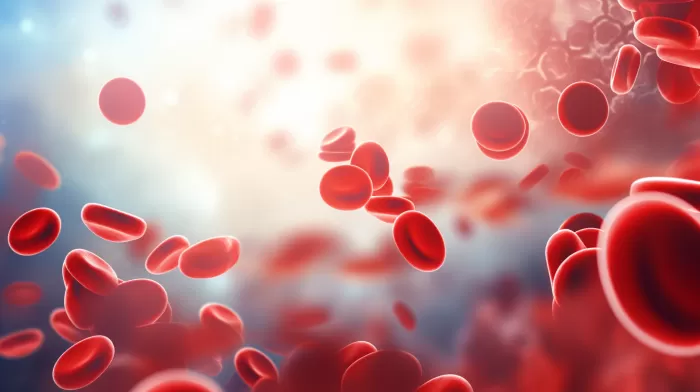How healthy are your red blood cells? You might want to find out, as their condition could be tied to the future health of your brain. A study at the University of California, San Francisco, demonstrates that if your blood exhibits indications of anemia, you may face a roughly 35% increased risk of dementia.
What Is Anemia?
Anemia is a condition where your body lacks enough red blood cells or hemoglobin, resulting in reduced oxygen flow to your body’s organs. Hemoglobin is the principal protein in red blood cells that binds to oxygen, ensuring its distribution throughout your body. Thus, having a low red blood cell count or abnormal hemoglobin amounts can directly impact your overall health.
“Anemia is prevalent in the elderly, affecting up to 23 percent of adults aged 65 and older,” says study author Kristine Yaffe. The condition has been connected to an increased risk of early death in previous research.
The Study
In the study, 2,552 older adults between 70-79 years old were tested for anemia and underwent memory and thinking exams over 11 years. Out of those participants, 393 had anemia at the beginning of the research.
“There are several explanations for why anemia may be linked to dementia,” states Yaffe. “For example, anemia may be a marker for poor health in general, or low oxygen levels resulting from anemia may play a role in the connection. Reductions in oxygen to the brain have been shown to reduce memory and thinking abilities and may contribute to damage to neurons.”
Types of Anemia
There are numerous types of anemia, and recognizing the different causes can help identify which one you may encounter and how to address it.
- Iron-deficiency anemia: This type of anemia is commonly caused by a lack of iron in your diet, inadequate iron absorption, or blood loss due to menstruation or injury. Iron is crucial for producing hemoglobin, and a deficiency can result in a reduced red blood cell size and anemic symptoms.
-
Vitamin-deficiency anemia: Poor diet or malabsorption of necessary nutrients, like vitamin B12 or folic acid, can lead to anemia. It may cause a decreased red blood cell count, enlarged red blood cells, or both.
-
Hemolytic anemia: This inherited or acquired form of anemia occurs when your red blood cells are destroyed faster than your body can produce them, leading to a reduced red blood cell count and anemic symptoms.
-
Sickle cell anemia: Another inherited form of anemia, sickle cell anemia results from a genetic mutation that causes hemoglobin to change shape. This shape change interrupts blood flow and oxygen delivery, causing reduced red blood cell count and anemic symptoms.
-
Aplastic anemia: This life-threatening form of anemia arises when your bone marrow doesn’t produce enough new red blood cells. It can develop suddenly or progress slowly and can be caused by infections, autoimmune diseases, radiation, or certain medications.
Symptoms and Diagnosis
Symptoms of anemia can vary, but some common signs include fatigue, pale or yellowish skin, shortness of breath, dizziness, cold hands and feet, irregular heartbeat, and cognitive problems like brain fog or memory issues. Unfortunately, some people may not exhibit symptoms until the condition becomes severe.
If you suspect you may have anemia, consult your doctor for a blood test. They will likely check your hemoglobin levels, hematocrit (the proportion of red blood cells in your blood), and complete blood count to determine your red blood cell numbers and size.
Treatment and Prevention
Treatment for anemia depends on its cause. Some possible treatments include iron or vitamin supplements, medication, blood transfusion, or, in severe cases, bone marrow transplant.
There are various measures you can take to reduce your anemia risk and maintain a healthy red blood cell count, including:
- Eat a balanced, nutrient-rich diet including iron, vitamin B12, and folic acid to support red blood cell production.
- Get regular check-ups to monitor your red blood cell count, especially if you have a family history of anemia.
- If you are pregnant, follow your doctor’s recommendations regarding prenatal vitamins to ensure sufficient nutrient intake for you and your baby.
- Women experiencing heavy periods may need to consider iron supplementation to maintain healthy red blood cell levels.
- If you are on medications that can cause anemia, discuss with your doctor potential alternatives or monitor your red blood cell count regularly.
In conclusion, understanding the importance of healthy red blood cells and being aware of the various forms of anemia is crucial for maintaining your overall health. A proactive approach to maintaining a healthy red blood cell count can not only reduce your risk of developing dementia but also support your body’s essential functions.



